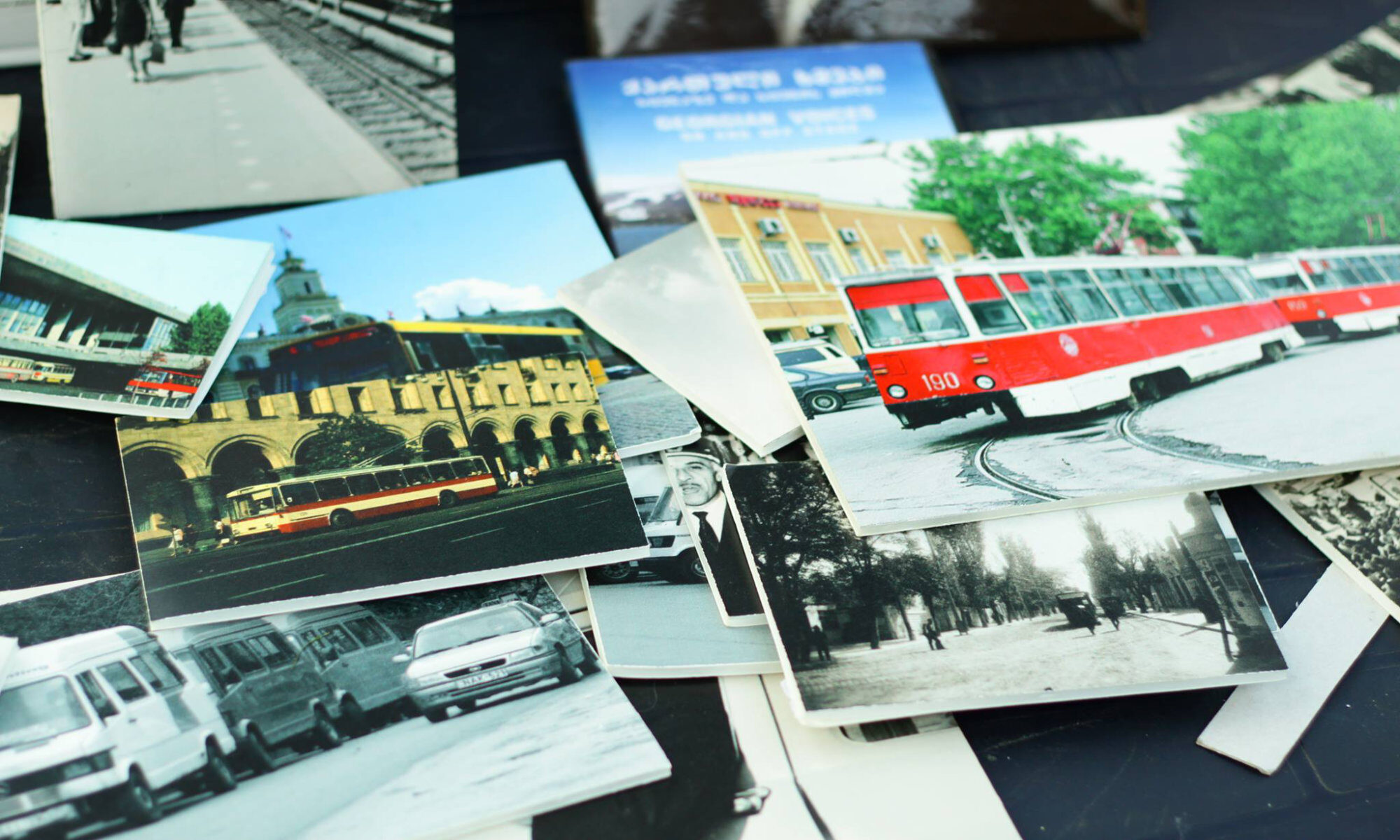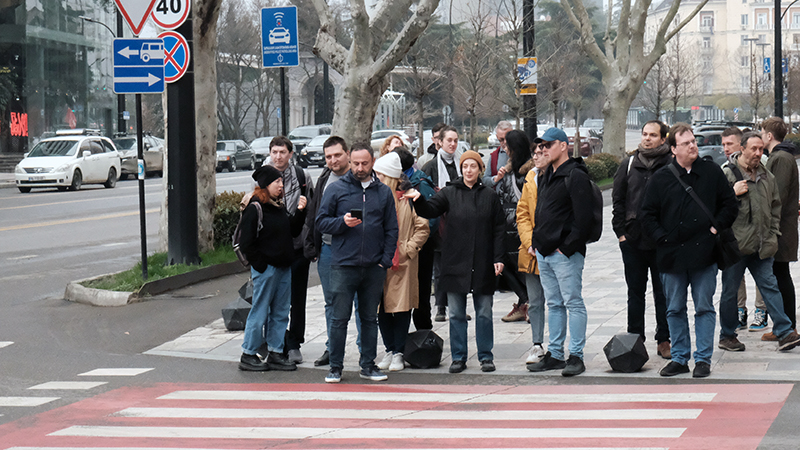During the third weekend of March 2023, the team of the IfL project Contentious mobilities through a decolonial lens (CoMoDe) hosted – jointly with the Ilia State University – a Symposium in Tbilisi, Georgia. The name of the event was “Knowledge Production in Public Transport – Normativities. Actors. Outcomes”. Since Lela Rekhviashvili, a postdoctoral researcher within CoMoDe, had been studying the public transport reform in Tbilisi, her expertise in the field shaped the conceptual framework of the symposium. Furthermore, a former employee of the Tbilisi city hall – Elene Khundzadze – who was a fellowship-holder at IfL – amply contributed with to the conceptual and organisational preparation of the event.
From cycling in the USSR up to airport development in Kutaisi and beyond
Surprisingly to us, many people from all around the world showed big interest to the topic. Researchers, artists and activists from Kyrgyzstan, Uzbekistan, Israel, Russia, Ukraine, Belarus, Lithuania, Poland, Germany, Switzerland, Belgium, and the UK attended the symposium during four days.
Academic contributions were very different in scopes and agendas. Cycling in the USSR, trams in Poland, airport development in Kutaisi, fare-free public transport in Tallinn, role and purpose of planning documents in Russia are only few examples of the topics covered by the symposium participants. Beyond “classical” presentations, we had three series of workshops on the last day of the event, focusing on a short on-site fieldwork, data analysis, and transport-related board game.

Insights into the Tbilisi transport reform
Aside from academic contributions the symposium provided an insightful and deep dive into the context of Tbilisi transport reform. Georgian consultants, officials, journalists, planners, activists and artists shared their experience and concerns with the ongoing process (one example is here). Meanwhile the mixture of academic, artistic and very practical knowledge shared by the participants from Tbilisi, created a favourable atmosphere for vibrant discussions around the issues of planning, funding, communication, decision-making, activism, and education.
Keynotes, film screenings and a „life-changing“ metro excursion
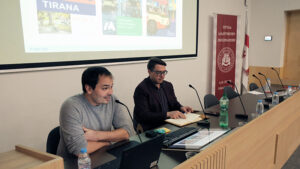
We also had the pleasure to hear a brilliant keynote lecture from Tonio Weicker (video on youtube), dedicated to the influence of Western expertise in transport reforms, based on two case studies from Lviv in Ukraine, and Tirana in Albania. The keynote nicely resonated with the first keynote lecture by Lela Rekhviashvili and Elene Khundadze (video on youtube) who gave a very bright overview of the Tbilisi transport reform in the beginning of the symposium. The last keynote speaker, unfortunately, fell sick and therefore had to skip almost the entire program. Honestly speaking, he was not alone facing health issues, and a number of participants spent days in their bed instead of the symposium. This was almost the only problem we struggled with, as the rest of the program went really smoothly. Also the atmosphere was intense and friendly, despite all the difficulties associated with the war in Ukraine.
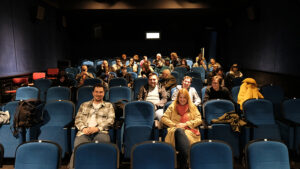
Following a very successful experience from the Putspace symposium in Görlitz in 2021, movie screenings were part of the program. The first one, by Tekla Aslanishvili and Evelina Gambino dealt, in poetical and powerful images, with the geopolitics of the railroad between Kars and Baku. The second, by Iskender Aliyev and Bermet Borubayeva showed the efforts of activists in their fight against air pollution in Bishkek. Both films have shown an amazing interrelation between research activities and the art of film making.
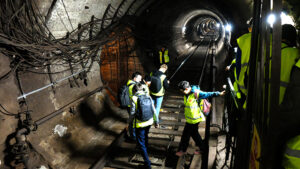
One of the highlights was the excursion to the Tbilisi metro during the night hours. We travelled through tunnels on a very old diesel train. Workers of the metro and transportation department showed us rolling stock, tunnels, and equipment, and explained how this extremely complicated infrastructure operates on a daily basis. As Wladimir Sgibnev pointed out the next morning after the excursion: “It was a life changing experience”.
It was indeed a remarkable event. The CoMoDe colleagues Lela Rekhviashvili, Elene Khundadze, Wladimir Sgibnev, Lyubomir Pozharliev, Stella Köhler and Mariya Petrova together with Ketevan Gurchiani from Ilia State University have done a great job. The symposium showed how complicated and multi-layered a transportation reform can be. Discussions posed new questions, provided answers, perhaps even inspired some of us (to the least the author of this post) to new thoughts and ideas. I hope that the other participants share similar impressions. On behalf of the CoMoDe team, I’d like to invite everybody to join our events in the future.
Egor Muleev has been part of the CoMoDe project team at the IfL since 2020. His research focuses on critical mobility studies and transportation studies. Also you can find his blog entry as originally published on the IfL Blog.
